Bang Energy Drink boasts a very impressive ingredients label with its caffeine content and a long list of amino acids and vitamins.
As great as it looks on the back of the can, does it really contain everything that’s stated?
If you are curious to know the answer, stick around as I cover everything about Bang Energy, from questioning its actual caffeine content to whether Bang is bad for you or not.
Let’s start!
Contents
Bang Energy Drink Nutrition Facts
First off, let’s have a look at the nutrition facts of Bang Energy, and what exactly a can of it will get you:
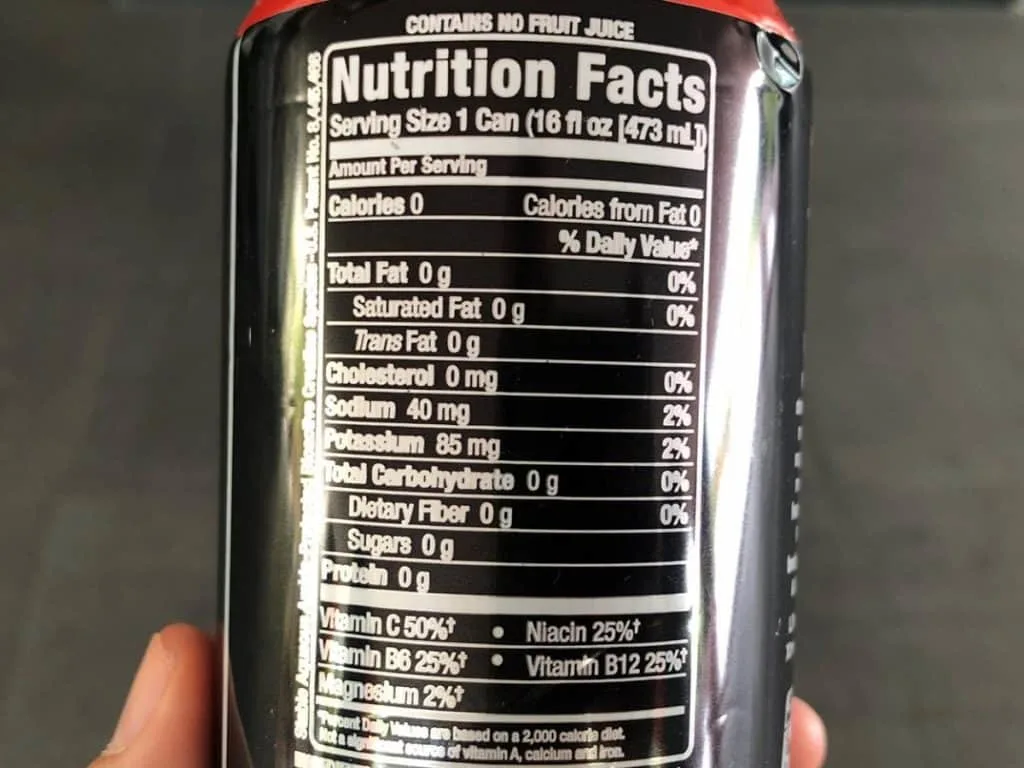
| Per Single 16 fl. oz. | Bang |
| Energy | 0 calories |
| Fat (Of which saturated) | 0g (0g) |
| Carbohydrates (of which sugars) | 0g (0g) |
| Caffeine | 300mg |
| Sodium | 40mg |
| Protein | 0g |
| Calcium | 5mg |
| Magnesium | 5mg |
| Vitamin C | 27mg |
| Vitamin B3 | 5mg |
| Vitamin B6 | 0.5mg |
| Vitamin B12 | 1.5μg |
What Are The Ingredients In Bang Energy Drink?
Each 16 fl. oz. can of Bang Energy Drink has the following ingredients:
- Carbonated Water
- Citric Acid Anhydrous
- Natural Flavors
- Phosphoric Acid
- Caffeine Anhydrous
- EAAs (L-leucine, L-isoleucine, L-valine, L-lysine, L-threonine, L-phenylalanine, L-histidine, L-methionine, L-tryptophan)
- Sodium Benzoate
- Potassium Citrate Monohydrate
- Sucralose
- Potassium Phosphate Dibasic
- Potassium Sorbate
- Magnesium Chloride
- Vitamin C
- SUPER CREATINE® (Creatyl-L-Leucine)
- Calcium Chloride
- Calcium Disodium EDTA
- Vitamin B3 (Niacinamide)
- CoQ10 (Coenzyme Q10)
- Vitamin B6 (Pyridoxine Hydrochloride)
- Vitamin B12 (Methylcobalamin)
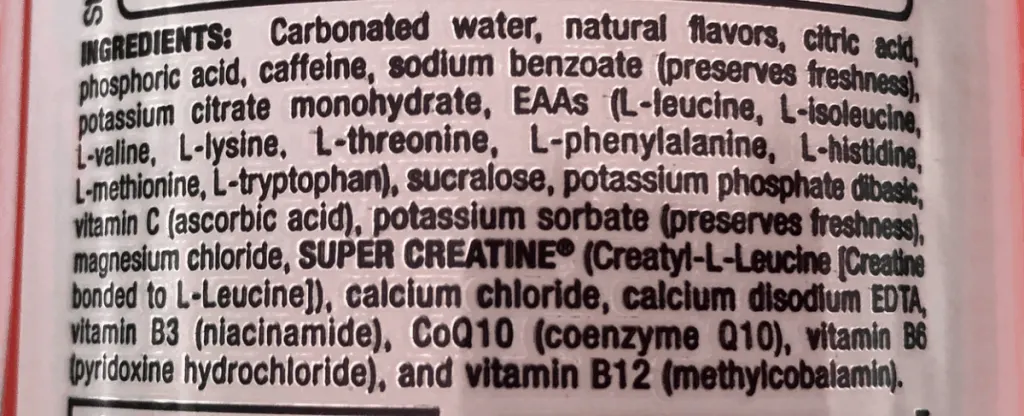
How Much Caffeine Is In Bang Energy Drink?
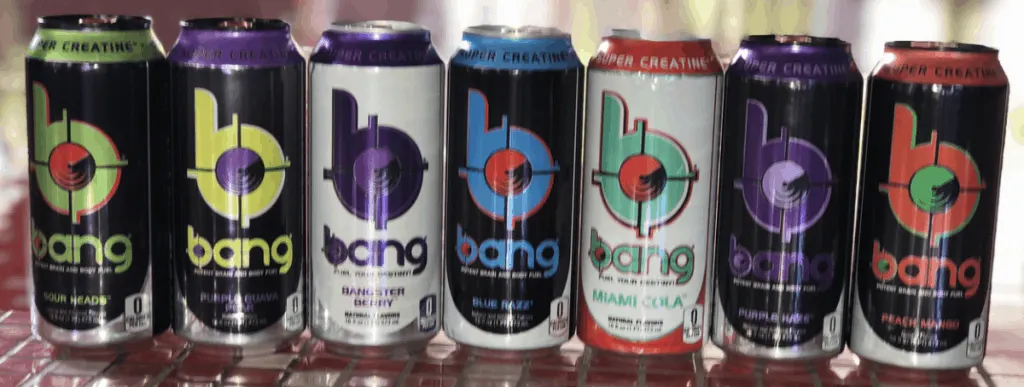
Every 16 fl. oz. can of Bang Energy Drink contains 300mg of caffeine, which makes Bang one of the strongest energy drinks you can get from your local stores and supermarkets.
According to the FDA, the daily caffeine limit for healthy adults is 400 mg. Any intake exceeding the caffeine limit can make you experience adverse effects such as:
- Insomnia
- Headaches
- Dizziness
- Restlessness and shakiness
- Anxiety
- Dehydration
Seeing that the caffeine content in a can of Bang Energy is already pretty close to hitting the daily caffeine limit, it is recommended to only drink one can each day. And if you start feeling dizzy or shaky whilst having Bang, you should discontinue and drink some water instead to alleviate the effects.
I would also advise you to avoid having other caffeinated beverages alongside Bang as it could easily make you reach your daily limit of caffeine.
For more information about caffeine, check out National Geographic’s video:
While we’re on the subject of Bang’s caffeine content, I found an interesting article that discussed the discrepancy in the caffeine content in the results of two lab tests performed on two different flavors of Bang (Purple Guava Pear and Sour Heads) with the caffeine content printed on the back of the Bang Energy Drink can.
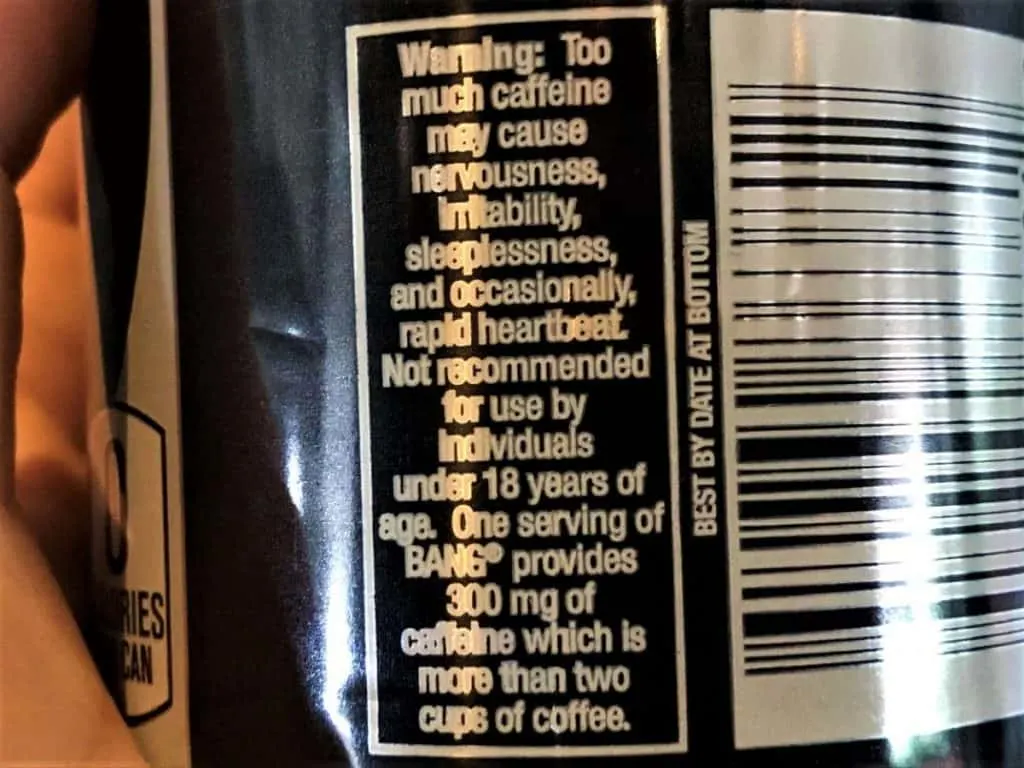
A sample of Bang Energy Purple Guava Pear was sent to Alpha Testing Labs for a test on its overall ingredients. The Sour Heads flavor was sent to Chemlab, a different laboratory, to only test its caffeine content for confirmation.
After reading through the results stated on the article, I was really surprised at the results which apparently indicated that Bang may have a lower caffeine content than stated.
That being said, the issue of inconsistencies in caffeine content between the two flavors of Bang tested in two independent labs were discussed and the reason was probably due to lack of quality control.
Nevertheless, I believe the better way to get more accurate results is to send the same flavor of Bang Energy to different labs for testing.
So, what’s the takeaway from these lab tests results?
I wouldn’t say that the company was lying about Bang Energy’s high caffeine content. After all, looking at the inconsistency in the lab test results, there’s a possibility that other flavors of Bang may actually contain 300 mg of caffeine.
We can conclude that generally, Bang Energy drink contains way less caffeine than what’s stated on the ingredients label.
For a more detailed look at the topic, you can read the article I’ve written on How Much Caffeine is in Bang Energy Drink.
Does Bang Energy Drink Contain Sugar?
Bang Energy Drink does not contain any sugar and thus is completely sugar-free.
So, if you trying to reduce your sugar intake or are following a diet, Bang would be great for you.
Aside from being sugar-free, it has zero carbs and no calories at all, so it won’t cause any increments in your daily calorie intake and would be a helpful complement for diets like the Mediterranean diet or low-carb diet.
Plus, since Bang is sugar-free, there’s little risk of you getting sugar crashes, which leaves you feeling sluggish and tired.
What Sweetener Is In Bang Energy Drinks?
Bang Energy contains Sucralose, an artificial sweetener.
Sucralose is a zero-calorie sweetener that can improve the taste of food and drinks.
Sucralose doesn’t cause any changes in blood sugar levels, so it’s okay for diabetics to consume this sweetener. Besides, it can also help you in weight control, satisfying your sugar cravings without the actual consumption of sugar. Sucralose also doesn’t cause cavities since it doesn’t have carbohydrates like sugar does.
But some studies have found that artificial sweeteners may still be linked to health issues like metabolic syndrome, diabetes and cardiovascular disease. So, you should have Sucralose in moderate amounts and try not to include them in every meal.
Other Ingredients
Amino Acids
Each 16 fl. oz. can of Bang contains Essential Amino Acids (EAAs).
These EAAs consists of nine amino acids that are important for your body, which are leucine, isoleucine, valine, lysine, threonine, phenylalanine, histidine, methionine, and tryptophan.
These amino acids can’t be produced naturally in the body and needs to be obtained through your diet.
Some of the benefits of these amino acids include enhancing exercise performance, preventing muscle loss and improving mood and sleep.
Coenzyme Q10
Coenzyme Q10 is a compound that helps your cells to generate enough energy. Your body can create this compound naturally but it can also be taken in supplement form.
One of the main benefits of this compound is that it can help increase physical performance. A 2010 study reported that supplementing with COQ10 increases physical power and decreases fatigue. As concluded in the study, it was inferred that COQ10 supplementation might be a good ergogenic aid.
Super Creatine
A proprietary ingredient, Super Creatine, or Creatyl-l-leucine, is apparently a water-soluble version of creatine created by Bang’s manufacturer, which is supposedly superior to regular Creatine.
That being said, Super Creatine isn’t actually Creatine, so you’re probably better off with Creatine supplements instead if you really want some extra creatine in your diet.
For a more detailed look at Super Creatine and whether or not Bang actually has any Creatine present in it, take a look at the following articles I’ve written on the topic:
Is there high fructose corn syrup in Bang?
Bang contains no high fructose corn syrup. Instead, Dextrose and Sucralose are the sugars in Bang. In detail, A can of Bang Energy drink contains 34 grams of sugar, or 8.5 teaspoons of sugar.
Finally, the sugar in Bang energy drink is not dangerous. However, because too much sugar can cause weight gain, it is critical to consume Bang in moderation.
Do bang energy drinks have chemicals?
Chemicals are present in all foods and beverages. Bang energy drinks are no different.
To name a few ingredients, the energy drink contains caffeine, taurine, B vitamins, and sucralose. There is no scientific proof that the chemicals in Bang energy drinks are hazardous, therefore do not be concerned.
Most of those ingredients, such as caffeine, taurine, and B vitamins, are found in other energy drinks and are generally considered safe by the FDA.
Does Bang Energy Have Alcohol In It?
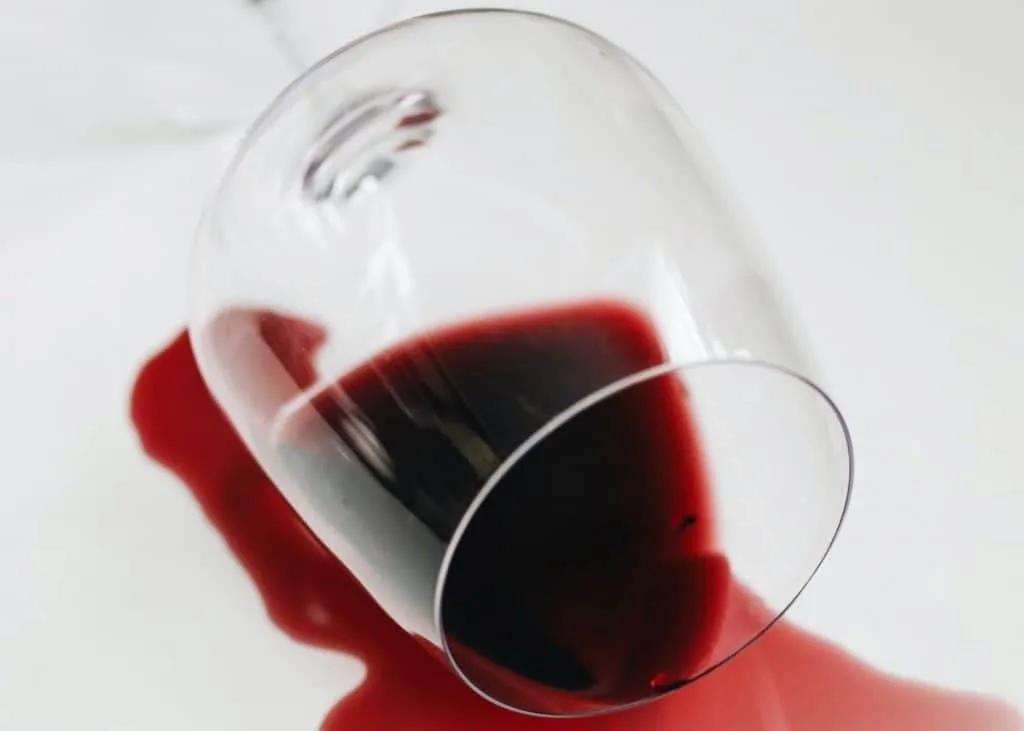
Going through the ingredients label, you’ll find that Bang Energy doesn’t have any traces of alcohol in it at all.
If you’re worried that Bang may have a certain percentage of alcohol in it, you’ll be glad to know that it’s completely free from alcohol.
For more information about this topic, you can read the article I’ve written on Does Bang Energy Contain Alcohol, which details whether Bang has alcohol content or not.
How Many Bang Energy Drinks Can I Drink A Day?
Since Bang Energy has a high caffeine content, the maximum amount of Bang Energy drinks you can have in a day is one can.
Having too much caffeine in a day is definitely a bad idea, and wouldn’t be beneficial to you in the long run. Furthermore, you don’t want to end up with a caffeine-induced headache instead of an energy boost.
You would also have to take into account of your caffeine metabolism. Depending on how fast it is, it’ll decide whether you can tolerate Bang’s elevated caffeine content. In other words, one can of Bang Energy might be too much for you if your tolerance for caffeine isn’t high enough.
To answer your query in detail, you can read on the articles I’ve written on Can You Drink Bang Energy Drink Every Day? and How Many Bangs Can You Have a Day?, which you’ll definitely find insightful.
Is Bang Energy Drink Bad For You?
Bang Energy Drink can be either good or bad depending on how much you consume it.
Looking through the ingredient label of a can of Bang, it has zero calories, sugar and carbs, and substitutes sugar with artificial sweeteners.
The pros of this are that you wouldn’t have to be concerned about consuming unnecessary calories, sugar, and carbs. If you’re on a diet, you can rest assured that Bang won’t interfere with that as well.
On the flipside, Bang has an elevated caffeine content which is not recommended for everyone and is prone to lead to side effects.
Plus, if you have medical conditions or are on prescription medications, the warning label on the back of the can states you shouldn’t have this drink as it might cause complications due to its caffeine content.
Additionally, when having Bang, you shouldn’t have other caffeinated beverages in the same day so you wouldn’t exceed the recommended daily intake of caffeine.
In my opinion, the caffeine present in Bang Energy Drink could enhance exercise and cognitive performance if you have an efficient caffeine metabolism.
Therefore, whether Bang Energy drink is bad for you or not depends on your caffeine metabolism and how well you manage your intake of Bang. The best way to have this drink while avoiding the side effects is to consume it in moderation.
You can find a more comprehensive discussion on this topic in the article Is Bang Energy Bad For You I’ve written, which you may probably find helpful.
Bang Energy Drink Flavors
Bang has a pretty large variety of flavors, so there’s definitely a flavor out there that suits your particular taste. Here are some of them below:
- Bangster Berry
- Birthday Cake Bash
- Black Cherry Vanilla
- Blue Razz
- Champagne
- Cherry Blade Lemonade
- Citrus Twist
- Cotton Candy
- Crisp Candy Apple
- Frosé Rosé
- Key Lime Pie
- Lemon Drop
- Miami Cola
- Peach Mango
- Pina Colada
- Power Punch
- Purple Guava Pear
- Purple Haze
- Purple Kiddles
- Radical Skadattle
- Rainbow Unicorn
- Root Beer
- Sour Heads
- Star Blast
- Strawberry Blast
Final Thoughts
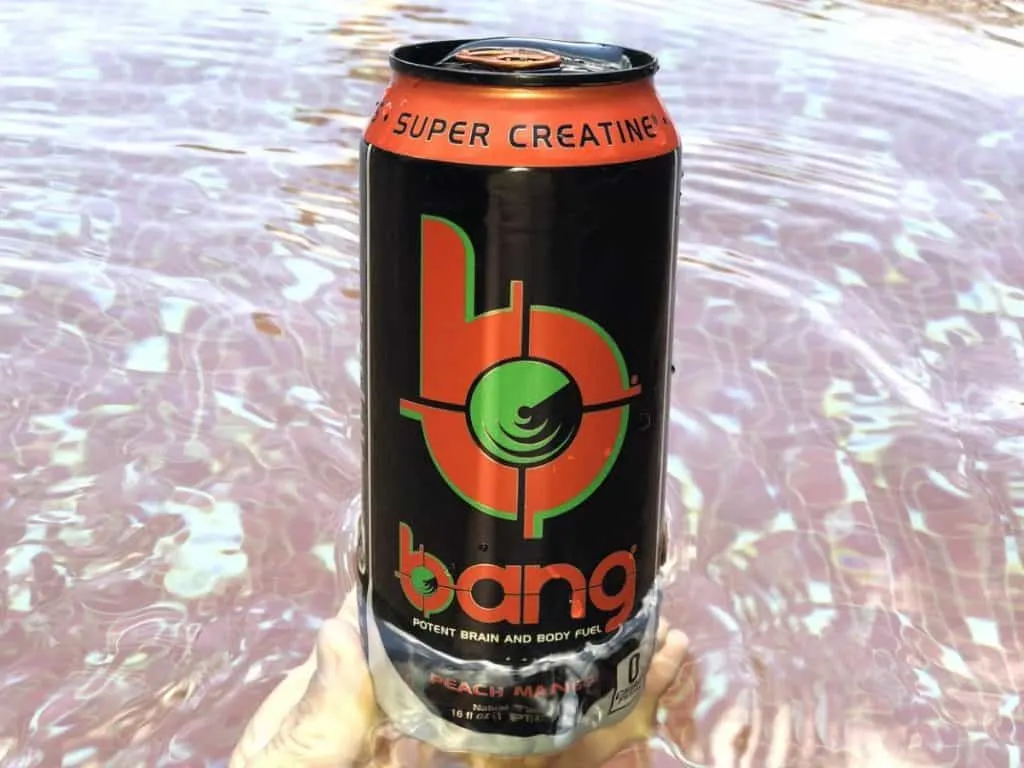
All-in-all, apart from the high caffeine content, Bang seem like pretty standard energy drink fare with a couple of unique ingredients thrown into the mix. It’s not for everyone, but it’s definitely interesting.
Ultimately, Bang’s most unique feature which makes or breaks the drink for you is actually its high 300mg of caffeine per serving, with most of the other ingredients coming secondary to that.
Bang is definitely not an energy drink for everyone, especially if you happen to be caffeine-sensitive or fairly new to energy drinks, but if you need something to really get you going, Bang is definitely a pretty good option.
Other Articles
If you would like to read more on Bang Energy Drinks, here are some of the articles that I have written that may interest you:
